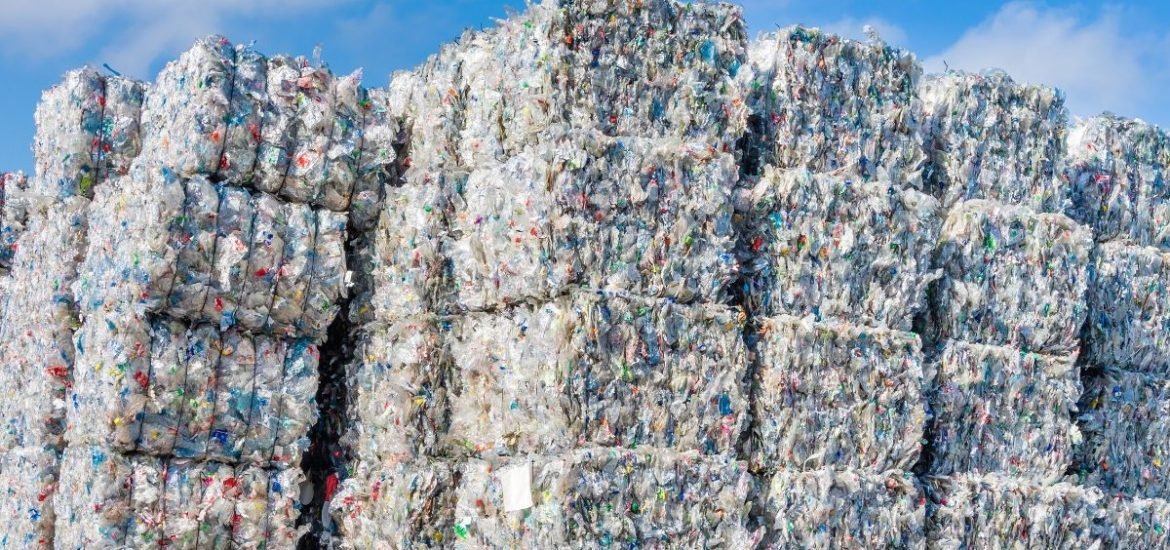
Public awareness of plastic pollution is growing and recycling has become widely adopted in Europe. However, although recycling masquerades as a solution, a large share of plastics for recycling are destined for landfill and oceans, according to a new study slated for publication in the September edition of the journal Environment International (1).
The authors say that most of Europe’s plastic exported for recycling – mainly polyethylene – is ‘not recycled at all’. Instead, plastic waste shipped to Asia often ends up in landfill or even in the ocean. For the first time, researchers have quantified the volume of plastic from European countries (EU, UK, Switzerland, and Norway) contributing to ocean littering.
Lead author George Bishop, a PhD candidate at NUI Galway, said: “The results indicate an important and previously undocumented pathway of plastic debris entering the oceans, which will have considerable environmental and social impacts on marine ecosystems and coastal communities.”
The researchers from the National University of Ireland Galway and the University of Limerick in Ireland used trade data and waste management data from destination countries to determine the various fates – from successful conversion into recycled resins or ending up as landfill, incineration, or ocean debris – of all plastic recycling exported from Europe.
They discovered that a massive 46 per cent of European separated plastic waste is exported outside the country of origin. While China was previously the single biggest importer of plastics for recycling, the country closed its doors in 2017. Since then, Southeast Asian nations with poor waste management practices have shouldered the burden.
According to the authors, a large share of this waste is rejected from recycling streams and significantly contributes to ocean littering. For 2017, they estimated that up to 180,000 tonnes – that is, around 7 per cent, of all exported European polyethene – may have ended up in the oceans.
Co-author Dr David Styles, a lecturer at the University of Limerick, explained: “Given that such a large share of waste destined for recycling is exported, with poor downstream traceability, this study suggests that ‘true’ recycling rates may deviate significantly from rates reported by municipalities and countries where the waste originates.”
The human addiction to plastics has led to a widespread plastic pandemic: over 300 million tonnes are produced annually. Plastics have been found in the deepest depths of the ocean and on remote mountaintops. Most synthetic plastics are not biodegradable and will remain in the environment for centuries to come. This poses a major threat to ecosystems and food chains.
Around 10 million tonnes of this plastic makes its way into the ocean each year. By 2050, there will be more plastic in the ocean than fish, by weight. Scientists recently discovered that plastics outnumber fish by a massive seven to one in some fish nurseries. Moreover, marine species and small fish can mistake plastics for food.
The authors caution that their findings do not suggest that people should stop recycling, as it remains the most effective waste management route. Rather, the study highlights an urgent need to improve plastic recycling chains to reduce ‘leakage’ and prevent further damage to oceans, coastal communities, and land ecosystems.
(1) Bishop, G., Styles, D., and Piet N.L.Lensa, P.N.L. Recycling of European plastic is a pathway for plastic debris in the ocean. Environment International (2020). DOI: 10.1016/j.envint.2020.105893
Good morning sir,
We can help you.. the waste plastic one type of Assets or raw material of our innovation. We can produce a valuable products with plastic,sand and some ingredients….
Our products are mainly using for construction area, likes road,building and Roof construction…
We are mechanical engineers. This idea was best social startup in 2018 @kerala .India.
If you want more information contact through mail id.
We are interested to join with your company
Recycling is very important for our generation. You are a great fellow for doing such a great job.
We need to be equipped with the basic knowledge of recycling and hopefully everyone would be interested on practicing zero waste.